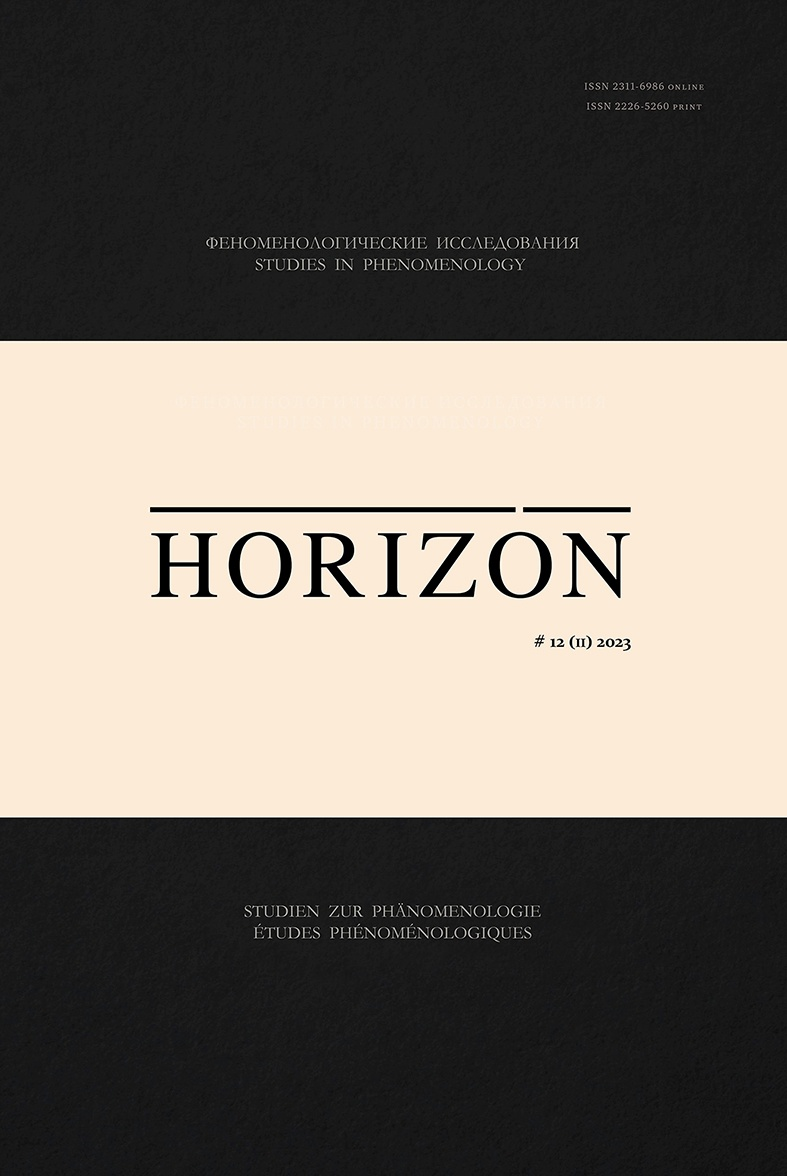ДОЛГ И МОРАЛЬНОЕ МИРОВОЗЗРЕНИЕ В «ФЕНОМЕНОЛОГИИ ДУХА» И ФЕНОМЕНОЛОГИЧЕСКАЯ КРИТИКА DING AN SICH
DUTY AND MORAL WORLD-VIEW IN “THE PHENMENOLOGY OF
SPIRIT” AND PHENOMENOLOGICAL CRITIQUE OF DING AN SICH
Author(s): Mikhail BelousovSubject(s): Philosophy, History of Philosophy, Philosophical Traditions, German Idealism, Phenomenology
Published by: Издательство Санкт-Петербургского государственного университета
Keywords: duty; moral world-view; thing in itself; appearance; phenomenology; Hegel; Kant;
Summary/Abstract: The question of the world in itself — the world beyond its correlation with experience in the broadest sense — is one of the sore points of phenomenology and becomes especially acute in the light of modern discussions around correlationism. These discussions, in one way or another, make phenomenology come around to the classical distinction between the phenomenon and the thing-in-itself, with the help of which Kant outlines the field of ethics as a special world lying on the other side of the correlation of knowledge and object constitutive for nature. Philosophy deals with the thing-in-itself in the proper, positive sense of the word, not as phenomenology (transcendental philosophy, which reveals the correlation of knowledge and reality in the world of phenomena and the futility of attempts by theoretical reason to know anything beyond phenomena), but as a critique of practical reason. The article attempts to consider the opposition of the thing-in-itself and the phenomenon in the context of the criticism that Kant’s practical philosophy is subjected to in Hegel’s The Phenomenology of Spirit and to explicate the arguments that this criticism makes available to phenomenology for rethinking the problem of Ding an sich and the ethical dimension of the epoche. The first part of the article examines the Hegelian analysis of the main contradiction contained in the Kantian opposition of duty as something that is in itself, and nature as a phenomenon (this opposition forms what Hegel calls the moral worldview): duty does not depend on nature and therefore does not need natural (phenomenal) realization in actions, but at the same time, duty is nothing but the necessity of actions and, consequently, the necessity of a phenomenon. This contradiction, as Hegel shows, leads to the disintegration of the moral worldview and, thus, turns into the sublation of the absolute separation of duty (thing in itself) and nature (phenomenon). The restitution of the difference between the moral an sich and the phenomenon within conscience — a phenomenon that arises as a result of the destruction of the moral worldview — turns into a new paradox, which demonstrates that the thing-in-itself (ethical good), since it is freed from the phenomenon, is not only unreal, but also turns into its own opposite. The paradox consists in the fact that the consciousness of duty, taken in its independence from the phenomenal realization in actions, becomes evil itself, turning to hypocrisy in the moral judgment about other people’s actions. In the second part of the article, the significance of the Hegelian critique of Kant’s practical philosophy for the phenomenological destruction of the difference between the thing-in-itself and the phenomenon and the problematization of the ethical dimension of the phenomenological method is explicated. Tracing the naive origins of this difference in the natural attitude and their transformation in Kantian philosophy, the author tries to consider the sublation of the opposition of the thing-in-itself and the phenomenon in the field of ethics as one of the possible paths to phenomenology. It is shown how the necessary relation of the supra-worldly an sich with the situational nature of its phenomenal realization in actions calls into question the possibility of a phenomenological epoche. The author also seeks to demonstrate that the problematization of the difference between the thing-in-itself and the phenomenon does not turn phenomenology into a system in the Hegelian sense.
Journal: Horizon. Феноменологические исследования
- Issue Year: 12/2023
- Issue No: 2
- Page Range: 502-530
- Page Count: 29
- Language: Russian

